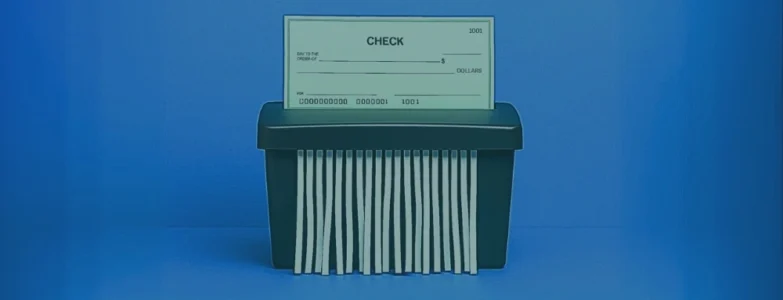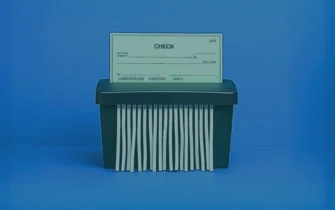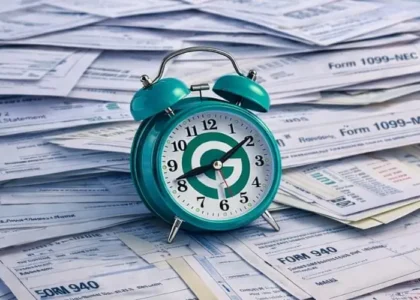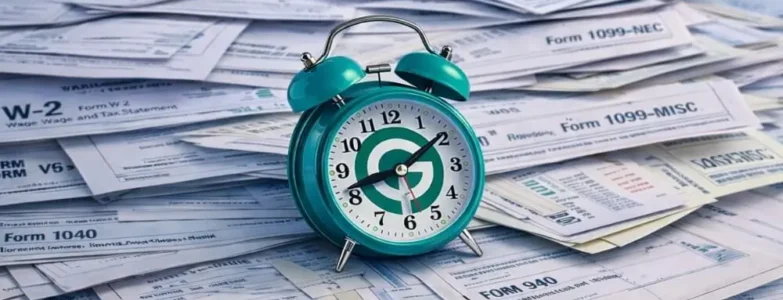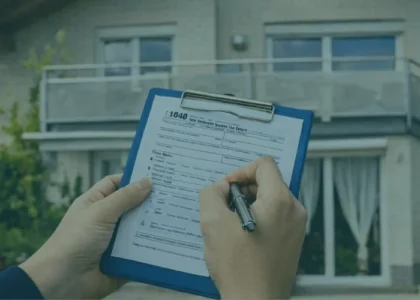The Guillen Pujol CPAs Newsroom
On March 25, 2025, President Trump signed the Executive Order “Modernizing Payments To and From America’s Bank Account,” mandating a shift to all-electronic federal disbursements. Effective September 30, 2025, IRS tax refunds will no longer be issued via paper checks. Instead, refunds will arrive via direct deposit, Treasury-issued prepaid cards, or other authorized digital transfers.
For millions of taxpayers—especially U.S. citizens abroad, non-residents, and those without access to U.S. banking– paper refund checks have long been a routine feature of tax season and, for many, a lifeline. The shift to an all-digital system will reshape how these groups access legally owed funds, prompting a wave of urgent questions and, for some, new barriers to navigate. Below, we address the most pressing issues some of our international clients are raising about this transition and explain what it means for you.
Frequently Asked Questions About the IRS Ending Paper Refund Checks in September 2025
What Changed in 2025
Until now, taxpayers could choose between direct deposit or by mailed paper checks. For many U.S.-based taxpayers, direct deposit has been faster and more secure for most—but nearly 6% of filers (around 6 million individuals) relied on paper checks in 2025. Many were expats, non-residents, or those unwilling to share banking details with the IRS.
That option disappears after September 30. Refunds must be delivered electronically, presenting unique challenges for those without U.S. bank accounts or stable access to digital payments.
Groups who historically depended on paper checks:
- Expats and non-residents without access to U.S. bank accounts.
- Unbanked taxpayers lacking U.S. banking options.
- Estates, trusts, and amended returns—situations where mailed paper checks were once the default.
A once-flexible system is now locked into digital: electronic-only refunds will streamline delivery for some, while complicating access for others.
Will Paper Refund Checks Be Available After September 30, 2025?
No. As of that date, paper checks are prohibited under Executive Order 14247 (“Modernizing Payments To and From America’s Bank Account”)—except in narrow cases of hardship, national security concerns, or lack of access to electronic banking. For most, refunds will become fully digital.
What Are the New Electronic Options?
- Direct deposit into a U.S.bank or credit union account––fastest and preferred.
- Treasury-sponsored prepaid debit cards, such as the Direct Express® card––for those without traditional bank accounts.
- Other electronic methods, including emerging digital wallets or real-time transfer systems as the Treasury expands its infrastructure.
If you already use direct deposit, your process won’t change. For others, preparing for this shift is essential.
How Much Faster Are Electronic Refunds?
Direct deposits typically arrive within 21 calendar days after electronic return acceptance, according to IRS.gov. By contrast, paper checks often took several weeks longer, and were susceptible to postal delays or theft. The new system is faster—but only with accurate banking details.
What Happens If My Bank Info Is Incorrect or Closed?
The refund fails, returns to the Treasury, and the IRS may attempt another method—such as issuing a prepaid card—or contact you for updated details. These delays can extend refund times by several weeks. To avoid these delays, taxpayers should:
- Double-check bank details before filing.
- Keep the account open and active until the refund is received.
- Update account information promptly if you change banks before filing.
Expats & Non-Residents: Special Considerations
Can the IRS deposit into foreign bank accounts?
No. The IRS does not support direct deposits into foreign bank accounts, even if the institution provides an ABA routing number through a correspondent relationship. Refunds must go to U.S. dollar accounts held in the United States. Some global banks (like HSBC or Citi) offer U.S.-based accounts via American branches– these are valid destinations– but foreign accounts generally do not qualify.
What If I Only Have a Non-U.S. account?
Options include:
- Opening a U.S.-based account.
- Request your refund through a Treasury-issued prepaid card (international availability remains uncertain).
- Applying your refund toward next year’s taxes via Form 1040, line 35a––It does not result in immediate cash—but it prevents losing access and it functions as a payment applied in advance.
Remote Bank Account Options for Expats
Several U.S. banks and fintechs currently support remote onboarding options for expats and non-residents. Here’s a snapshot of remote onboarding options available to expats in 2025—not an endorsement, as policies and eligibility vary widely.
| Provider | Personal account (not business) | Remote opening from abroad |
| Charles Schwab International | Yes (brokerage + linked checking) | Yes, for residents in eligible countries (international onboarding) |
| HSBC U.S. (Premier / International) | Yes | Yes (cross-border / overseas account opening) |
| Citi International Personal Bank (IPB U.S.) | Yes | Yes (wealth management tier only; very high balance requirements) |
| Alliant Credit Union | Yes | Online, membership possible; proof of U.S. ties often required |
| NBKC Bank | Yes | Unclear; case by case for non-residents |
| Wise (“U.S. account details”) | Fintech, partner U.S. bank provides ABA | Yes (varies by country) |
| Payoneer “Receiving Accounts” | Primarily business use | Yes (for marketplace and commercial payments, not recommended for IRS refunds) |
| Revolut U.S. (personal) | Fintech account | Generally no remote onboarding; requires presence in the U.S. with visa/SSN/ITIN |
| Mercury | Business-only (LLC/Corp with EIN) | Yes, but only for companies, not individuals |
Technical FAQs
What qualifies as a valid IRS refund destination?
Only a U.S.-based bank account linked to the Federal Reserve—directly or via a correspondent—can receive IRS refunds. An ABA routing number from a fintech provider is no guarantee. If an account is classified as prepaid or if the name doesn’t match IRS records, the deposit may fail. Expats should proactively confirm compliance with their provider before filing to avoid delays.
Do amended returns filed from abroad qualify for refunds?
Yes—but they must follow the same electronic-only mandate after September 30, 2025. Form 1040-X refunds require a U.S. account, and though the IRS now accepts e-filing for amendments, processing may take up to 20 weeks (IRS.gov, 2025).
Are prepaid cards a viable international option?
Not reliably. Treasury’s Direct Express® card doesn’t handle IRS refunds—it’s restricted to federal benefits (Social Security, VA payments). Experimental prepaid options have existed in past stimulus programs, but none currently apply to tax refunds. Private prepaid options may offer longer reach but carry costs—delivery hassles, transaction fees, and replacement delays—making them unsuitable as a primary method. For expats and non-residents, a U.S. bank account remains the safest channel for refunds.
How Guillen Pujol CPAs Can Help You Navigate Electronic Refunds
As the IRS fully transitions to electronic refunds, expats, non-residents, and cross-border taxpayers face real logistical challenges—from obtaining compliant U.S. accounts to ensuring filings are accepted reliably. Our firm brings over 35 years of international tax and compliance expertise to help you adapt smoothly and avoid disruptions.
Some of Our Services Include:
- Expats & Non-Residents. Guidance on opening or structuring U.S. accounts, applying tax treaties, and asset-regularization through disclosure programs so deposits can be made without any issue.
- IRS Compliance & Filings. Support with 1040/1040-NR returns, amended filings, and resolving past IRS issues to prevent refund blockage.
- Businesses & Entrepreneurs Abroad. We assist with entity selection, form the U.S. structure on your behalf, and ensure it meets cross-border corporate compliance standards. Our advisory covers governance, reporting, and tax treatment—so that your entity remains eligible to receive Treasury payments and operates without regulatory friction.
- Special Cases. Expertise in estate/ trust handling, as well as cases involving non-resident estates, where accurate compliance is key to ensuring electronic refunds and credits are processed correctly.
At Guillen Pujol CPAs, we integrate international tax consulting, compliance, and representation to give you confidence that your refunds will arrive securely and without unnecessary delays.
About Our Firm
At Guillen Pujol CPAs, our Miami firm specializes in high-income tax planning, international tax services, tax management, capital gains tax advisory on foreign-owned property (FIRPTA). We also offer outsourced bookkeeping, compliance, and controller services, among other accounting and tax advisory solutions. Our team of experienced tax professionals has helped thousands of clients navigate complex regulations. This includes areas like corporate maintenance and compliance, tax compliance and optimal tax management strategies, business financial performance evaluation, and compilation services. As leading experts among Miami CPA firms, we are committed to providing exceptional business and tax consulting services tailored to your needs.
Take Action Now: Need professional tax guidance? Contact us today.
Planning Tomorrow, Together, with GPCPAs.
Trusted by Businesses Worldwide
Editor’s Note: This post is part of the ‘GPCPAs Info Hub,’ an initiative dedicated to empowering you with the knowledge and strategies needed to navigate the complexities of the U.S. tax system and financial strategies. Visit our Information Hub, a curated resource offering the latest in tax, economic, and business news, alongside actionable guidance on tax strategies, accounting, and business advisory—because Planning Tomorrow starts here.
- 2026 Tax Calendar: Your Guide to IRS Deadlines All Year
- How Realtors Can Reduce Their Taxable Income Through Smart Entity Selection and Advanced Tax Planning
- After the Shutdown: How IRS Cuts Continue Affecting Taxpayers
- IRS Tax Brackets for 2026: What Business Owners Need to Know
- Florida’s Hunting, Fishing & Camping Sales Tax Holiday 2025: A Guide for Shoppers & Businesses



